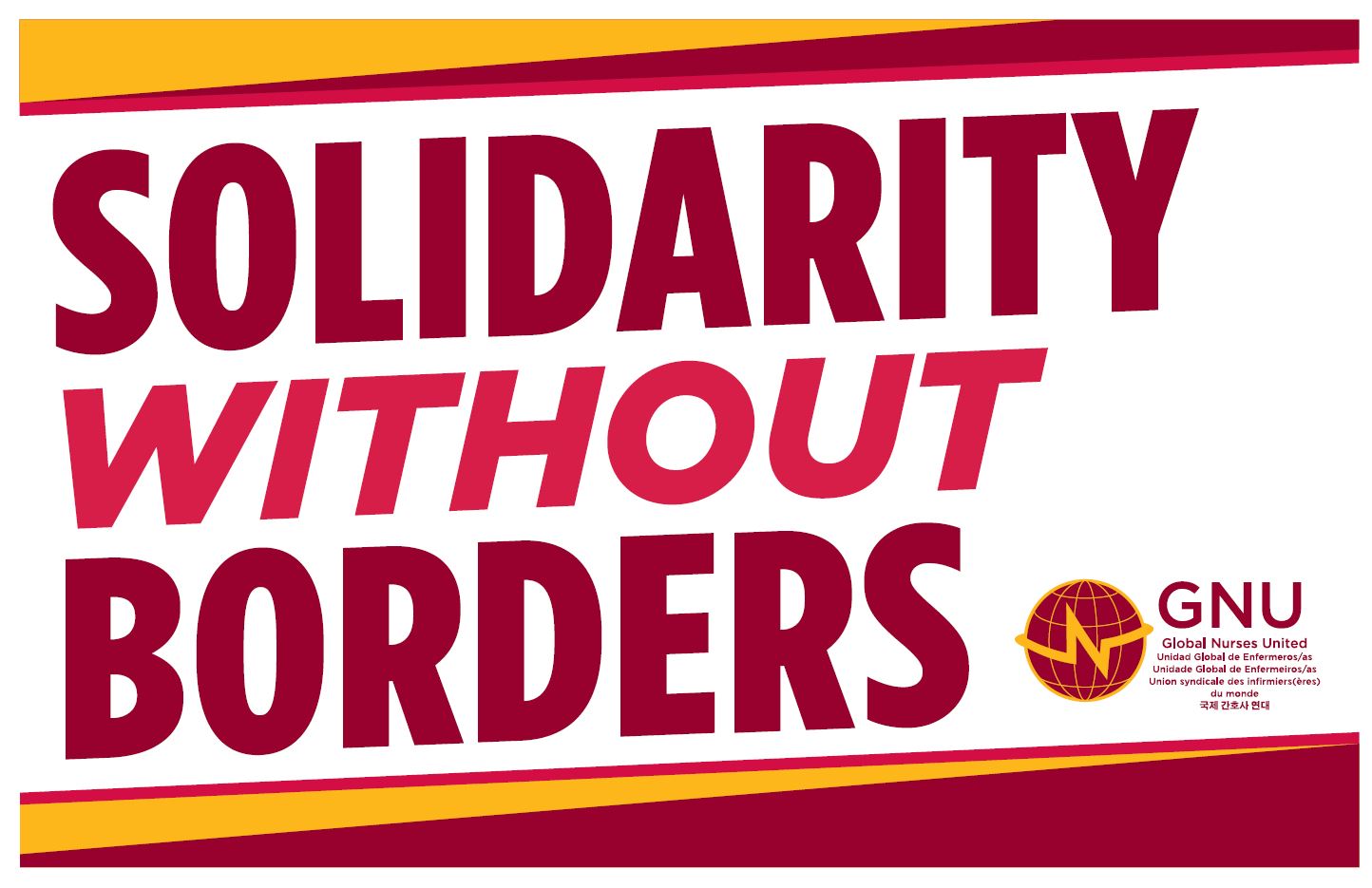Understaffing is endangering both nurses and patients and undermining healthcare quality, a groundbreaking new report from Global Nurses United (GNU) has revealed.
The worldwide nurse staffing crisis affects regions differently – with the Global North experiencing workforce exodus due to poor conditions while the Global South struggles with severe resource limitations, according to the report. Yet, the root causes share common themes – undervaluation of nursing work, inadequate labour protections, technological disruption without proper oversight, and systemic disinvestment in public health infrastructure.
Launched following robust discussions regarding unsafe staffing levels and the action needed at a GNU meeting in Costa Rica last November, the report, titled Global Crisis, Collective Solution: Addressing the Worldwide Nurse Staffing Crisis, suggests collective action by nurses has proven the most effective in securing meaningful reforms across some jurisdictions, particularly nurse-to-patient ratios.
“We conclude that strengthening labour rights and empowering nurses to advocate for workplace improvements are essential components of any effective solution to the global nurse staffing crisis,” the report states.
Global nursing staffing crisis
Understaffing remains a key issue and concern for nurses around the globe, says the report, with numerous studies finding the “critical problem” affects professional satisfaction, patient safety, and overall healthcare quality.
The crisis is not without the solution, the report argues, with several studies finding that minimum nurse-to-patient ratios effectively improve nurse staffing levels and health and safety for both patients and nurses. However, policy proposals and research alone aren’t enough the push governments to improve the nurse staffing crisis, the report suggests.
“Organised pressure and collective demands are needed from nurses, healthcare workers, and patients to ensure that basic protections and reformed are passed into law,” the report states.
“Understaffing touches many aspects of health and safety for nurses and patients alike. Resolving this global crisis is essential to nurses’ ability to protect, advocate, and provide the highest quality care to our patients.”
Working conditions must improve
Across the globe, countries are experiencing increases in infectious disease, workplace violence, and other workplace safety issues, threatening both recruitment and retention of nurses, according to the report.
“Nurses require and furthermore deserve to conduct our skilled, lifesaving work under safe conditions,” it states.
“Nursing unions are key to enacting this vital security. Health care administrators are not poised to prioritise the diverse workplace needs of nurses, and organized nurses challenge their common assumption that workers are mere numbers in a formula designed to control costs and produce profits. By advocating for strong, enforceable contracts and empowering those without power, organized nurses all over the world have transformed what quality healthcare truly looks like and are foremost experts on concrete improvements to working conditions.”
Workplace violence in healthcare cannot continue
Ways to eliminate workplace violence, a “devastatingly common global trend”, are varied, says the report, but each choice shares something in common: the knowledge that violence against healthcare workers is unacceptable.
“Understaffing greatly increases the risk of workplace violence in healthcare facilities. Nurses who face high levels of time pressure and frequent interruptions – common impacts of understaffing – were nearly twice as likely to experience workplace violence. Correspondingly, research into prevention has shown that improved staffing levels effectively reduce workplace violence rates. Preventing workplace violence is an essential part of ending the nurse staffing crisis and protecting nurse and patient safety.”
Labour rights are crucial
GNU says it recognises that nurses are subject to differing and diverse forces based on their relative position in the global economy.
“Nurses in different regions of the world face very different conditions with regards to the bargaining power we are able to harness in service to our patients and our profession,” the report states.
“It nevertheless remains true that organising and building worker power is the primary driver of change for nurses’ ability to improve our working conditions, including the pivotal issue of staffing. Extending and safeguarding nurses’ labour protections and our right to bargain collectively will therefore be of paramount importance in addressing the global staffing crisis.”
While there are multiple compounding causes for the nurse staffing crisis that require equally complex strategies, GNU asserts the primacy of building the collective power of nurses to effect change in their own working conditions from the ground up through organising, advocacy, and global solidarity.
For example, nurse-to-patient staffing ratios were achieved in places like California and Victoria through persistent collective organising and nurses exercising their protected rights.
“Fixing the global nurse staffing crisis will require more than education and investment: it will require strengthening labour rights and protections for nurses and all workers,” the report concludes.
“This means one of the key challenges to addressing the current staffing crisis is the increasingly aggressive global assault on labour. Across the world, we are witnessing unprecedented attacks against labour that strip nurses and other workers of hard-won rights and protections.
“Addressing the nurse staffing crisis will therefore require confronting this global assault on labour. GNU will continue to combat these anti-worker attacks by further strengthening the international alliances that uplift the voice of working nurses and broaden the reach of our collective power.”
Read the full report at GNU








